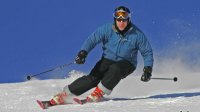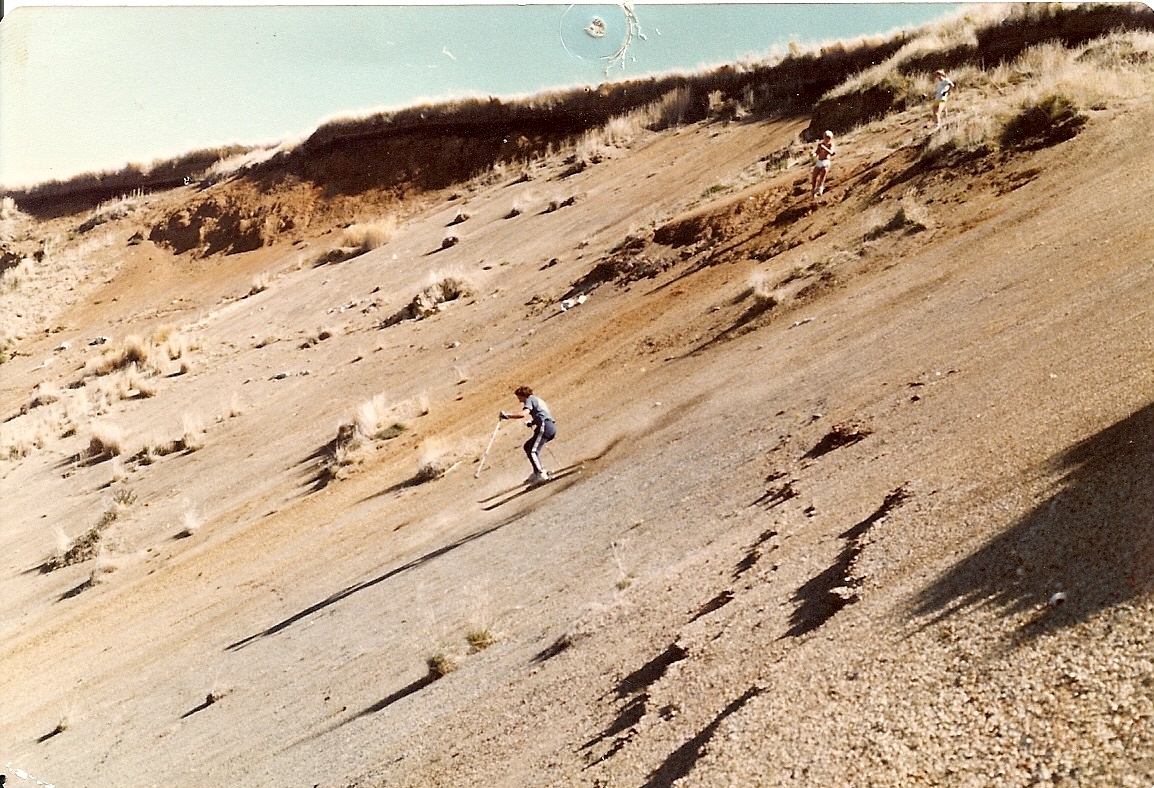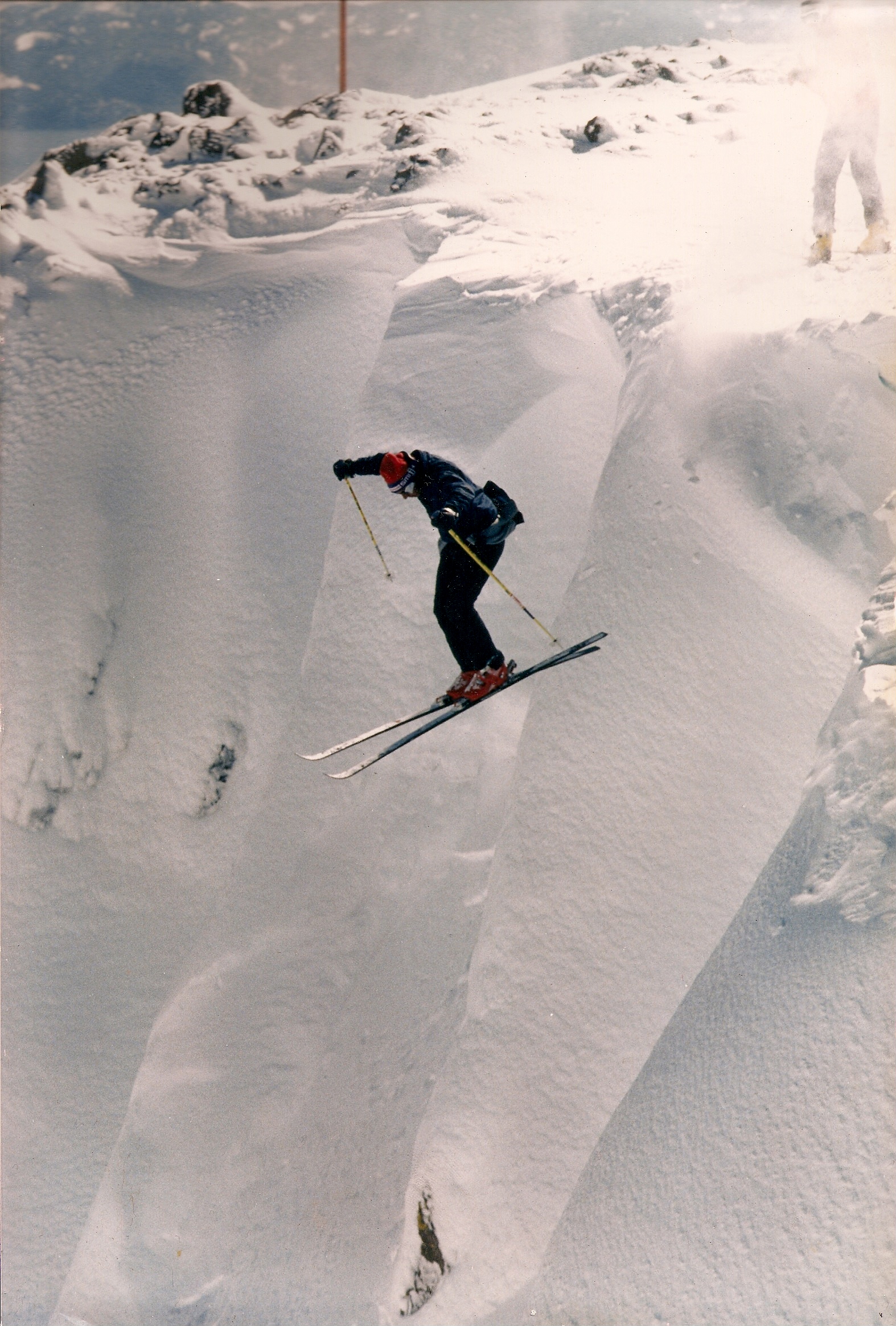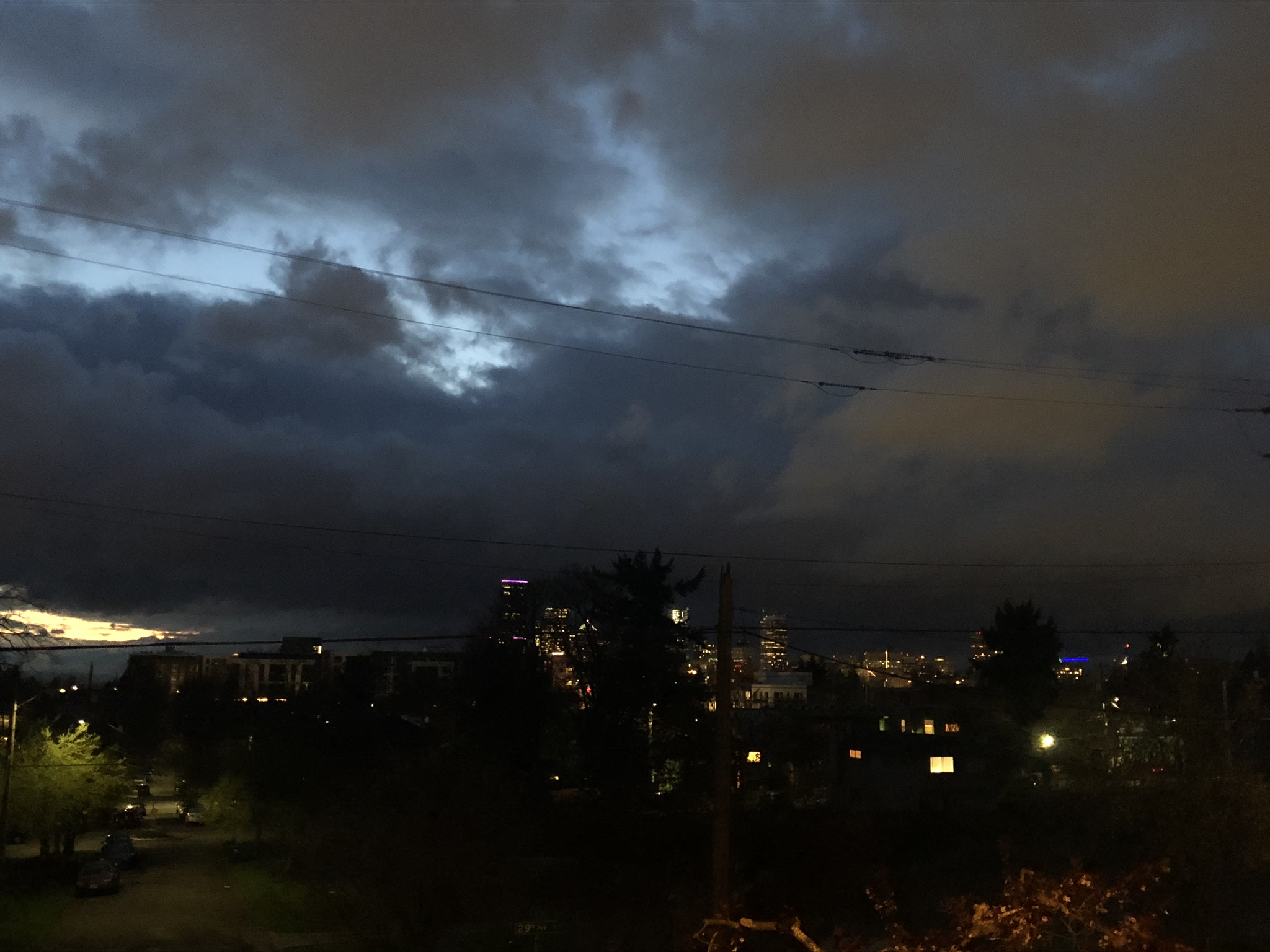Steve Hoenisch: Profile
This page presents some of my history and lists some of the people, places, activities, ideas, writers, and books that I like.
Current hometown: Seattle.
Current home mountains: Whistler Blackcomb, Stevens Pass, Alpental.

Interests: Skiing, hiking, athletic training and functional training, dance, soccer, healthy food, travel, slow cities, literature, mindfulness.
Teams: Liverpool FC, Seattle Sounders, Oregon, U.S. Ski Team, Alpine Canada. ⛷
Some Places I’ve lived: Brooklyn (Williamsburg); Manhattan; London, England; Leadville, Colo.; Tahoe City; Salem, Mass.; Granite, Utah; Vermont.
Past home mountains: Timberline, Mt. Hood; Copper Mountain, Colo.; Mt. Hood Meadows, Ore.; Mt. Bachelor, Ore., Squaw Valley, Calif.; Snowbird, Utah; Sugarbush, Vermont; Mad River Glen, Vermont.
Education: Master’s degree in linguistics, The Graduate Center, City University of New York; bachelor’s degree in philosophy, , minor in economics, University of Oregon. View listing of graduate course work.
Some Organizations I like: Alpental BARK, U.S. Ski Team, Doctors Without Borders (Medecins Sans Frontieres), U.S. Ski and Snowboard Association (USSA).

Skiing at Cascade Head, Oregon.
Some of my favorite places: Williamsburg and Greenpoint, Brooklyn; the Village; Cascade Head, Oregon; Little Cottonwood Canyon, Utah; Alpental; Mt. Hood; Rainier National Park; Waitsfield, Vermont; Amsterdam.
Streets and city parks have always been a big part of my life. I like to walk around cities and have spent a lot of my life simply walking (and bicycling) the streets of Portland, Manhattan, and Brooklyn. Some of the streets that I naturally gravitated to in Manhattan were Christopher Street in the West Village, First Avenue in the East Village, 14th Street, and Bleecker and MacDougal in Greenwich Village. When I lived in New York, I hung out in Washington Square Park, in Central Park, and in McCarren Park in Greenpoint. In Williamsburg and Greenpoint, Brooklyn, I spent so many years walking Bedford Ave., Metropolitan Ave., Manhattan Ave., Lorimer Street, Driggs, Devoe, Grand, and Graham that these places now live inside me.
Places I like in Portland and the surrounding area:
- Palmer.
- Zigzag Canyon.
- Government Camp.
- Oak’s Park Roller Rink.
Some Highlights: Helicopter off Palisades at Squaw Valley; Robert D. Putnam cites essay on Weber; Weber gets best of social science for web award; backcountry skiing at Alpental, Crystal, and Mt. Hood.

Launching off the Box, Main Chute, Palisades, Squaw Valley, California.
Some social and cultural critics I like: Marshall Berman, Robert D. Putnam, Patricia Clough, and Lester Faigley — the first couple of chapters of Fragments of Rationality: Postmodernity and the Subject of Composition is an exceptionally cogent discussion of postmodernism and the related structural changes that have, since 1963, transformed America. Other theorists whose work I admire: Catherine Wilson.
Theorists I like in a way that hasn’t passed: Mikhail Bakhtin, Roland Barthes, Michel Foucault, Max Weber, Karl Marx, Jurgen Habermas, Max Horkheimer, Walter Benjamin, Herbert Marcuse, Siegfried Kracauer, and especially Raymond Williams (The Country and the City is one of my favorite books).
Writers I like in a way that hasn’t passed: Bruce Chatwin, Paul Bowles.
Ideas I like: I embrace critical theory’s historical ideal of human emancipation and freedom from domination. Two of the practical ramifications of such a position are to look for mutuality and equality in interpersonal relationships and to work in a place devoid of hierarchy. The political ramifications are obvious: Working to put in place systems of participatory democracy governed by self-rule and economic systems governed by the principles of social justice.
I also embrace the mission of the Congressional Progressive Caucus, which was, according to its founding statement of purpose, “organized around the principles of social and economic justice, a non-discriminatory society, and national priorities which represent the interests of all people, not just the wealthy and powerful.”
A thesis I like: Using current nativist thinking in moral theory to motivate a reformulation of the fact-value paradigm in social science to render research relevant only if it resists and undermines the social and economic systems that dominate, exploit, hurt, and trap people.
More ideas that I like: Empathy and kindness as practices of resistance; re-evaluating ideas that are uncritically adopted from the system in which we are embedded; substance over image; literature as social knowledge; the dialogic voice and the dialogic imagination; inclusion over ritual exclusion; integration over dispossession; freedom from the iron cage and the silicon cage through economic justice; organic social interaction in the village-like neighborhoods of the inner city.
Some writers and critics who I think have accurately analyzed what’s been happening:
- Robert D. Putnam
- Robert Reich
- David Harvey
- Eric Alterman
- Barbara Ehrenreich
- Naomi Klein
- Frances Fox Piven
- Paul Krugman
- George Lakoff
- Jacob S. Hacker and Paul Pierson
Television Free: 1982 through 1994; 2003 to present.
Car Free: 1983 through 1990; 1992 through 1999.
Former occupations: Teacher, newspaper editor, freelance writer and editor, literacy worker, XML architect, book publishing.
Book Projects
Major contributor: American Encyclopedia of the Democratic Party and the Republican Party (I wrote on the same topics for both volumes). The encyclopedia, published by M.E. Sharpe, won the Choice Outstanding Academic Book Award in 1997.
Selected Academic Work
Most of the useful academic work that I’ve produced has focused on text linguistics, Wittgenstein, the relationship between language and psychoanalysis, approaches to discourse analysis, Max Weber’s approach to social science, and objectivity in social science. Most of my formal training has been in critical theory, discourse analysis, analytic philosophy, cognitive psychology, and theoretical linguistics.
- Max Weber’s View of Objectivity in Social Science. This essay was named best of the web for social science in 2003 by Encyclopaedia Britannica. The essay was cited by Robert D. Putnam, Professor of Public Policy at Harvard University, in his presidential address to the American Political Science Association at the 2002 APSA annual meeting.
- Interpretation and Indeterminacy in Discourse Analysis. Cited by Wikipedia entry on Indeterminacy (philosophy).
- The Myth of Psychoanalysis: Wittgenstein Contra Freud
- A Wittgensteinian Approach to Discourse Analysis
- Topical Structure Analysis of Accomplished English Prose. You can also check it out at the CUNY Graduate Center’s Mina Rees Library in Manhattan.
Selected Publications in Newspapers and Magazines
- Drive-Away Cars, in the Chicago Tribune
- XML: Six Articles in XML Journal
- Ski Bum Jobs, in Snow Country magazine
- Book Review of Read All About It: The Corporate Takeover of America’s Newspapers, in Willamette Week
Some History
Wilson High School, Portland, Oregon. University of Oregon: soccer team; bachelor’s degree in philosophy and economics.
Eugene: Oregon Daily Emerald: Editorial Page Editor.
Boston, Mass.: The Salem Evening News and New Age Journal.
Hartford, Conn.: The Hartford Courant.
New York, N.Y.: the New York Daily News, American Banker, and Royal Media Group.
The Graduate Center, City University of New York, master’s degree in linguistics; also: philosophy, cognitive science, sociology, and psychology.
Williamsburg, Brooklyn: www.Criticism.com. English, writing, or literacy teacher: United Talmudical Academy, Brooklyn Public Library (volunteer), Harlem Hospital, Maimonides Hospital, Bronx Community College, City Tech (New York City College of Technology, CUNY). New Jersey: AT&T, Concert, Verizon Wireless, Miramar Ski Club. Waitsfield, Vermont: Sugarbush and Mad River Glen. Williamsburg, Brooklyn, and London, England: Reed Business Information, Sutton (and Craven Cottage).
Seattle: The Central District (the CD).

A summer evening, the Central District, Seattle, 2020.
Back to the Present
How do we maintain our humanity, sanity, empathy, privacy, and cybersecurity in the face of change and digital transformation?
Simple answers work best: Breathe. Meditate. Practice mindfulness and kindness. Move. Go outside. Travel.
Some complicated answers might help, too: Combine critical theory and science with critical thinking and reading. Re-evaluate ideas and values that are uncritically adopted from the system in which we are embedded. Avoid totalizing.
The future is critical.